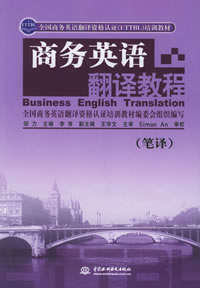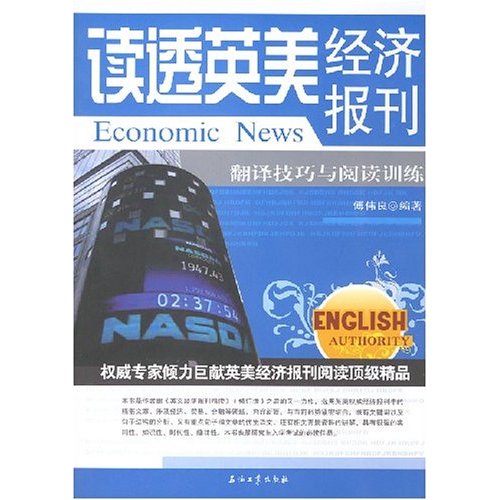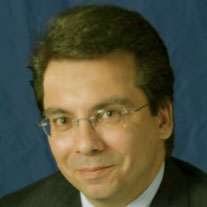谚语与英文翻译
作者:古龙 2009-07-04




语际翻译公司 转载请注明https://www.scientrans.com
∗本栏目部分文章内容来自互联网,部分已经过本站编辑和整理,如有版权事宜请联系Email/MSN jesczhao@hotmail.com
By others’ faults wise men learn.
Translation trainees can learn translating by two things: practicing translation and studying parallel texts and translation critiques. We have already talked about the urgency of translating, and the second thing that should be emphasized here is parallel texts in which STs and TTs are put together in one book or two books. Parallel texts have the advantages of teaching trainees the meanings of words, the structuring of sentences and expressions and the methods of translating. These texts are now fashionable, and one can easily find poetry collections and novels that provide original texts with their translations. In addition to this, it is of maximum importance that trainees follow and read translations critiques to see and understand the advantages and disadvantages in translated materials. Such critiques offer invaluable explanations and alternatives, and trainees can learn a lot from the ups and downs of other translators.
Cut your coat according to your cloth.
It is no use for novices to try in their formative years to translate tough names and subjects. While tough authors tend to employ the highest of their competencies, tough subjects uneasily lend themselves to interpretation and translation. Both tough authors and subjects need time to decipher their codes.
Don’t make a mountain out of a molehill.
During the learning and training period, junior translators do need to make a mountain out of a molehill. They have the right to brag to their colleagues and friends about what they are learning and doing. This is part of the human nature, and has always been observed in the behaviour of skillful and distinguished people.
Every sin carries its own punishment.
Yes. But while small sins are inexplicable and unforgiven, and deserve the appropriate punishment, big sins committed in the translation of complex units and structures are excusable and pardoned. The problem is that some trainees commit different sorts of sins, and there may be a time when the trainer, reviser and or teacher is unable to distinguish between big and small errors. So trainees are advised to avoid committing the small sins!
If you want a thing well done, do it yourself.
Senior translators who have established themselves in the market must not entrust their tasks to junior translators, especially when the translation material and client are serious and important.
It is easy to despise what you cannot get.
Destruction is easier than building, and criticism is easier than production. Finding faults with other people’s work has been noted to be carried out in great cases and situations at relative ease and speed. However, critics, revisers and translation trainers who are unable to display options and alternatives are in matter of fact mere quibblers. They surely deserve the charge of being jealous of the success of other people.
Jack of all trades and master of none.
Any aspiring translator who aims at recognition and success in his or her work must specialize in one area or two.
Little and often fill the purse.
Junior translators must practice and learn at gradual and steady paces. They must not take one big dose on one day and stop for a month. Gradualness also means carrying out translations piece by piece. This will ensure accuracy, organization and relaxation.
One is never too old to learn.
This is an instruction for all, junior and senior translators alike. There is always something new to learn, or old to be remembered. Translation conferences, workshops and forums offer a great deal to learn from them. There is also the opportunity to learn and share new ideas and thoughts with other people.
Prevention is better than cure.
&n
- 评论
- seme:文章内容文章内容文章内容文章内容文章内容文章内容文章内容文章内容文章内容 章内容文章内容文章内容文章内容文章内容
- seme:文章内容文章内容文章内容文章内容文章内容文章内容文章内容文章内容文章内容 章内容文章内容文章内容文章内容文章内容

- 英汉翻译中的直译与意译
2009-6-19 18:40:04 - 翻译是一门艺术,是一门带有刨造性、科学性的艺术。清代末期翻译家严复。在《天演论》的《译例言》中说:“译事三难、信、达、雅”如何达到“信、达、雅”大体说来有两种方法,...
- 英汉翻译中的陷阱
2009-6-19 10:32:38 - 英语中有些表达方法仿佛很容易理解,但翻译起来特别容易出错.我们一定要小心这些陷阱.例如下例: ...
- 第四届IEEE生物信息与生…
2009-6-30 19:42:01 - 基本信息 主办单位: 四川大学,IEEE生物医学工程协会(EMBS) 承办单位 开始日期 2010/06/18 结束日期 截稿日期 2009/1...
- 第九届全国光电技术学术…
2009-6-30 19:35:58 - 基本信息主办单位: 中国宇航学会光电技术专业委员会承办单位 开始日期 2009/11/01结束日期 截稿日期 2009...
















